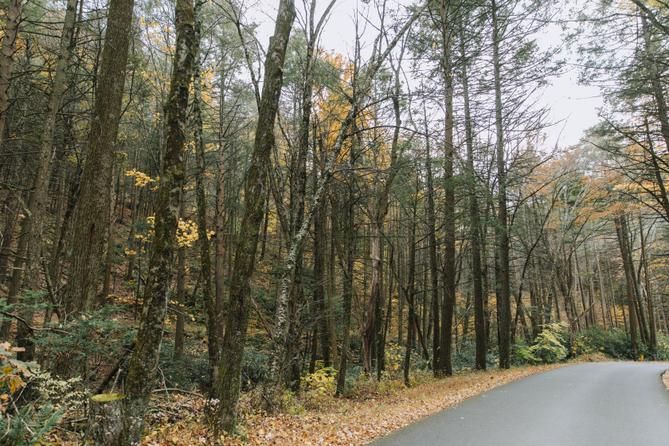This story was produced by the State College regional bureau of Spotlight PA, an independent, nonpartisan newsroom dedicated to investigative and public-service journalism for Pennsylvania. Sign up for our regional newsletter, Talk of the Town.
BELLEFONTE — Pennsylvania will send hundreds of thousands of dollars more to rural counties as part of an increase to what the government pays for state-owned land, a bump local officials say is necessary to keep areas with shrinking populations afloat.
The more than 3 million acres of state-owned park, forest, and game lands are tax-exempt and off-limits for development. Instead, the state government annually pays a certain amount per acre to counties, municipalities, and school districts with state-owned land in their boundaries, totaling more than $8 million statewide.
Lawmakers approved the first rate increase in years while finalizing the remaining pieces of the $45.4 billion state budget on Wednesday. This increase, included in a code bill that directs state spending, raises the payments to $2.40 per acre for the land owned by the state Department of Conservation and Natural Resources, the Game Commission, and the Fish and Boat Commission.
Counties, schools, and townships should expect payments with the rate increase next year.
Local officials say years without an increase have left governments and school districts — especially in rural areas with lots of state-owned land — to consider raising property taxes to generate revenue.
The County Commissioners Association of Pennsylvania is one of several statewide organizations that supports an increase. Lisa Schaefer, the association’s executive director, told Spotlight PA that property tax is counties’ only source of locally generated revenue, so tax-exempt properties can significantly impact local finances.
“The payment in lieu of taxes paid by the state helps to offset the burden shifted to other county property taxpayers,” she said.
The legislature last increased the payment rates in 2016, but the change applied only to DCNR, which paid $2 per acre to the county, township, and school districts where state-owned parks and forests are located. The Game Commission and Fish and Boat Commission have paid $1.20 per acre for counties, municipalities, and schools since 2006.
State Rep. Martin Causer (R., McKean), who advocated for past increases, told Spotlight PA that a raise offers tax fairness, especially to rural counties, because local officials can’t build on state-owned lands, and there’s a lot of it in rural counties, which also have a shrinking tax base, he said.
Causer noted the increase doesn't face widespread opposition; rather, the money for the state to make the payments has to come from somewhere. Gaming revenue goes toward these payments.
In Cameron County, about 60% of the land is state-owned, Commissioner Lori Reed, who retires from public office this month, told Spotlight PA.
The county has about 138,000 acres of state forests and parks and tens of thousands of game lands, so options for expanding housing or industrial development are limited, and the “burden of taxes falls on the 40% paying their fair share,” she added. A payment-in-lieu-of-tax increase would bring additional revenue of tens of thousands of dollars, so local governing bodies don’t have to rely solely on raising property taxes.
Josh Zucal, Cameron County’s marketing director and incoming commissioner, said that having an abundance of state-owned parks, forests, and game lands creates opportunities for tourism and outdoor recreation. However, the county is limited in ways to foster development and recruit new businesses to the area, which has seen major employers leave over the years.
In October, the Western Pennsylvania Conservancy announced the protection of 414 acres of forest land in Cameron County, which became part of Elk State Forest.
“That’s 400 acres less that we can try to develop or do something with,” Zucal told Spotlight PA.
Officials in Potter County — which has more than 270,000 acres of state-owned land — also support increasing payments in lieu of taxes as a boost for governments and school districts.
Potter County Commissioner Paul Heimel estimated the increase to $2.40 per acre will generate an additional $250,000 for the county each year, according to November board meeting minutes.
SUPPORT THIS JOURNALISM and help us reinvigorate local news in north-central Pennsylvania at spotlightpa.org/donate/statecollege. Spotlight PA is funded by foundations and readers like you who are committed to accountability and public-service journalism that gets results.

